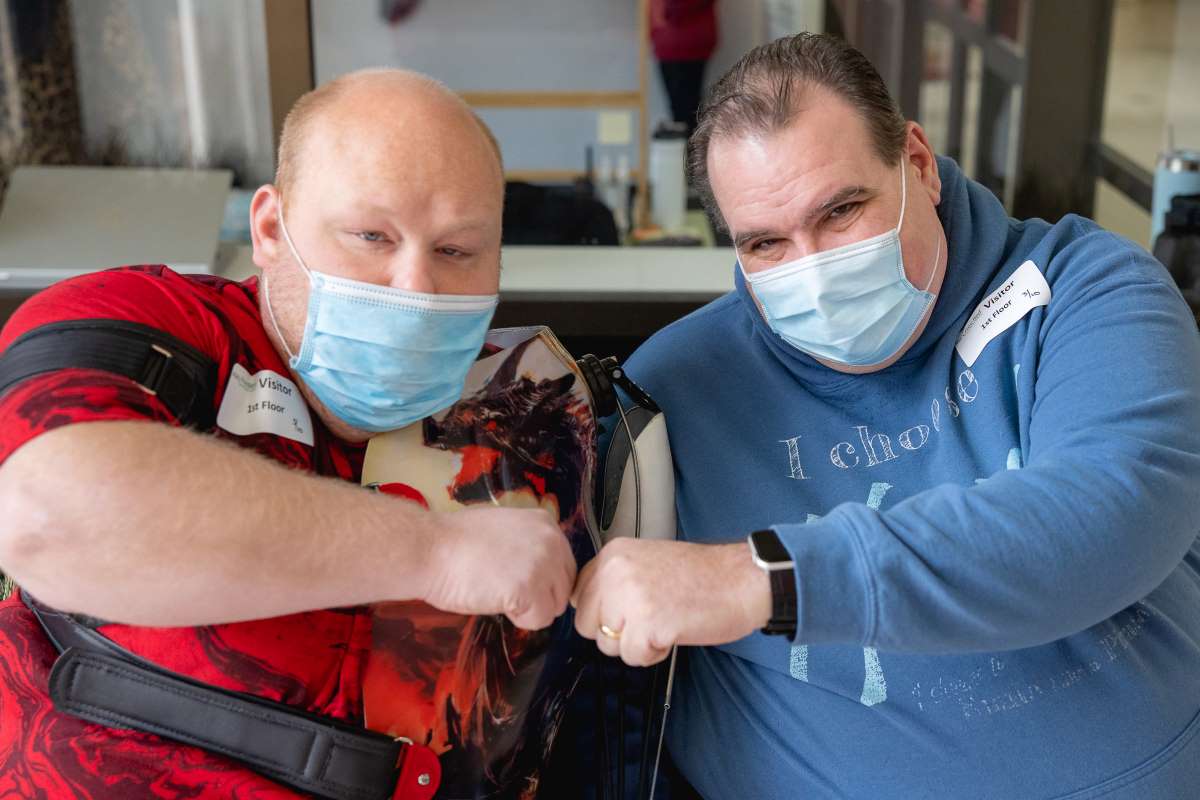
Board-certified rehabilitation physicians, hand-selected for you and your condition(s).
An amputation is a traumatic experience with both physical and emotional impact. We understand this, and you won’t face it alone.
Mary Free Bed offers coordinated, comprehensive care for a lifetime, from medical expertise and education to prosthetic technology and specialized therapy.
We’re here to help you live life to the fullest.
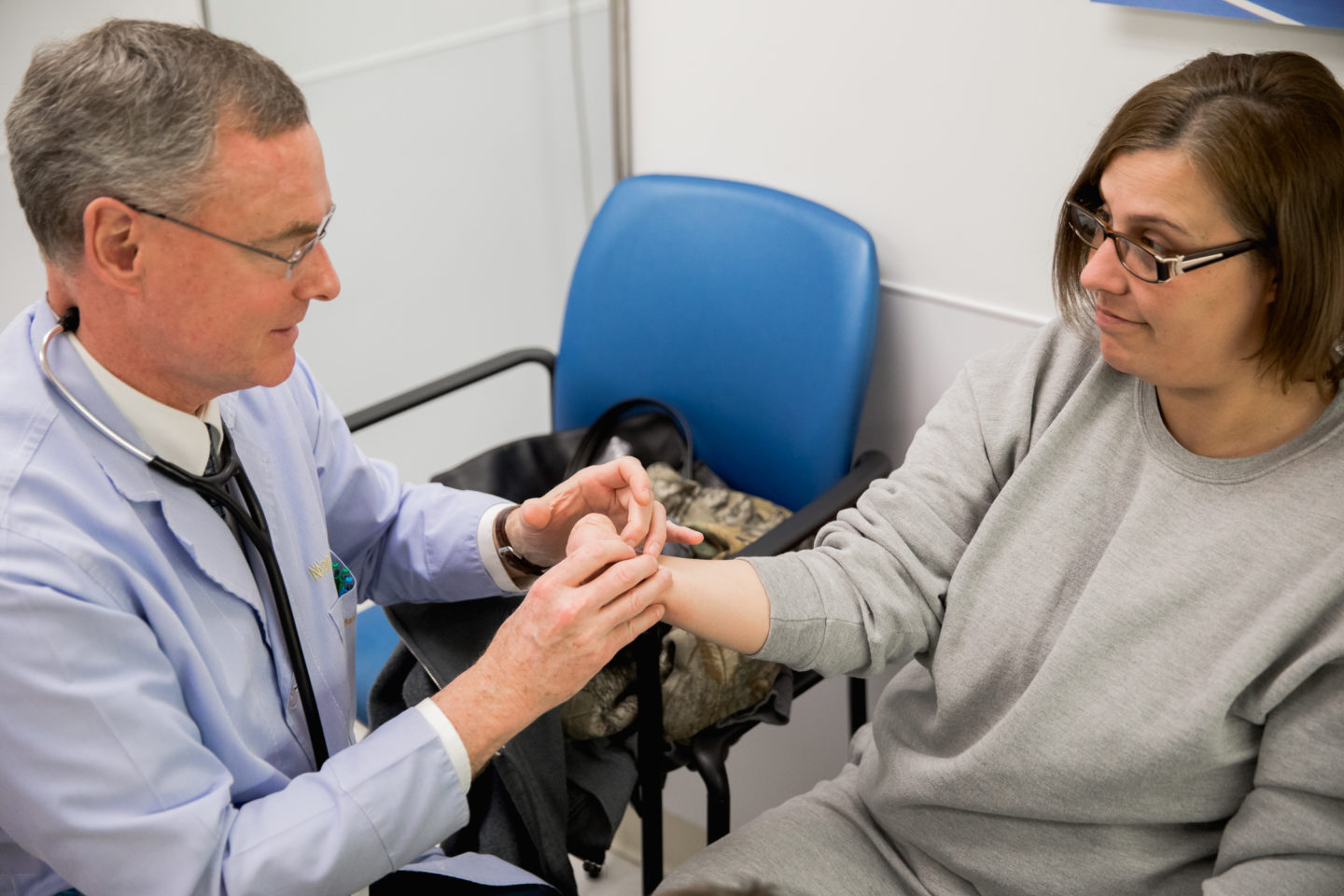
We specialize in helping people who’ve had surgery like yours. Adjusting to life after limb loss isn’t easy, but our team has the knowledge and compassion to set you up for the best possible outcome, beginning with our inpatient rehabilitation program.
Last year at our Grand Rapids hospital, we served over 100 patients with various amputations with proven results. For example, more patients than the national average returned home or to a home-like setting. Patients also surpassed the national average for functional improvement.
Your return to independence will be supported by bright, caring rehabilitation providers, including an amputee care liaison who will guide you along the journey.
After you graduate from our inpatient program, we offer outpatient medical care and therapy, Orthotics & Prosthetics + Bionics to maximize your mobility and independence, peer support and a host of other resources, including our amazing Wheelchair & Adaptive Sports program. We’re here for you for as long as you need us.
Our inpatient program is accredited by Commission on Accreditation of Rehabilitation Facilities International (CARF). This rigorous accreditation process is based on specific standards, ensuring the highest-quality rehabilitation for people who’ve experienced an amputation.
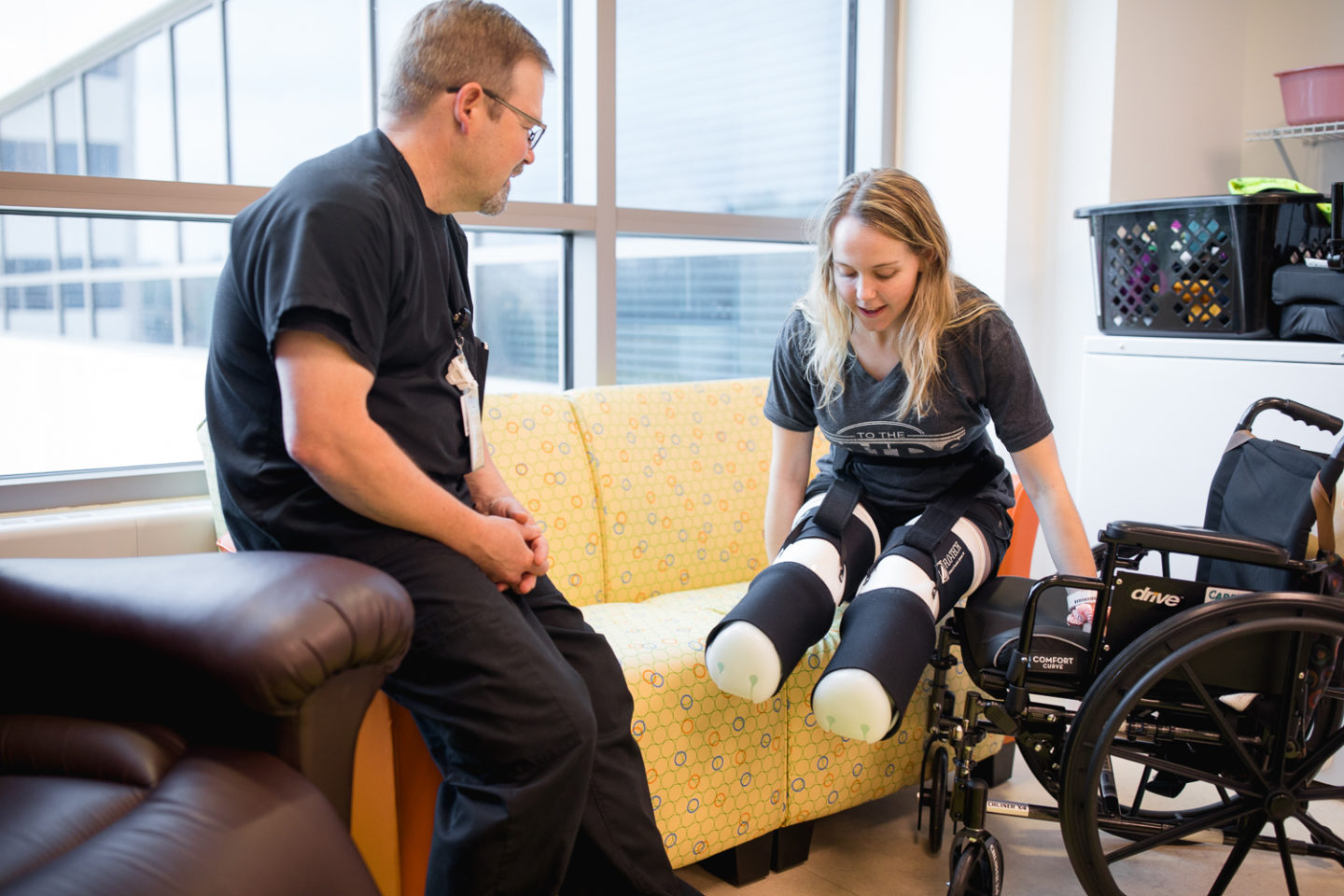
Your treatment team will work with you and your family to create a rehabilitation plan that addresses your specific goals. We’ll help you gain strength and endurance as you heal and prepare for your prosthetic.
Rehabilitation is hard work, but it’s rewarding.
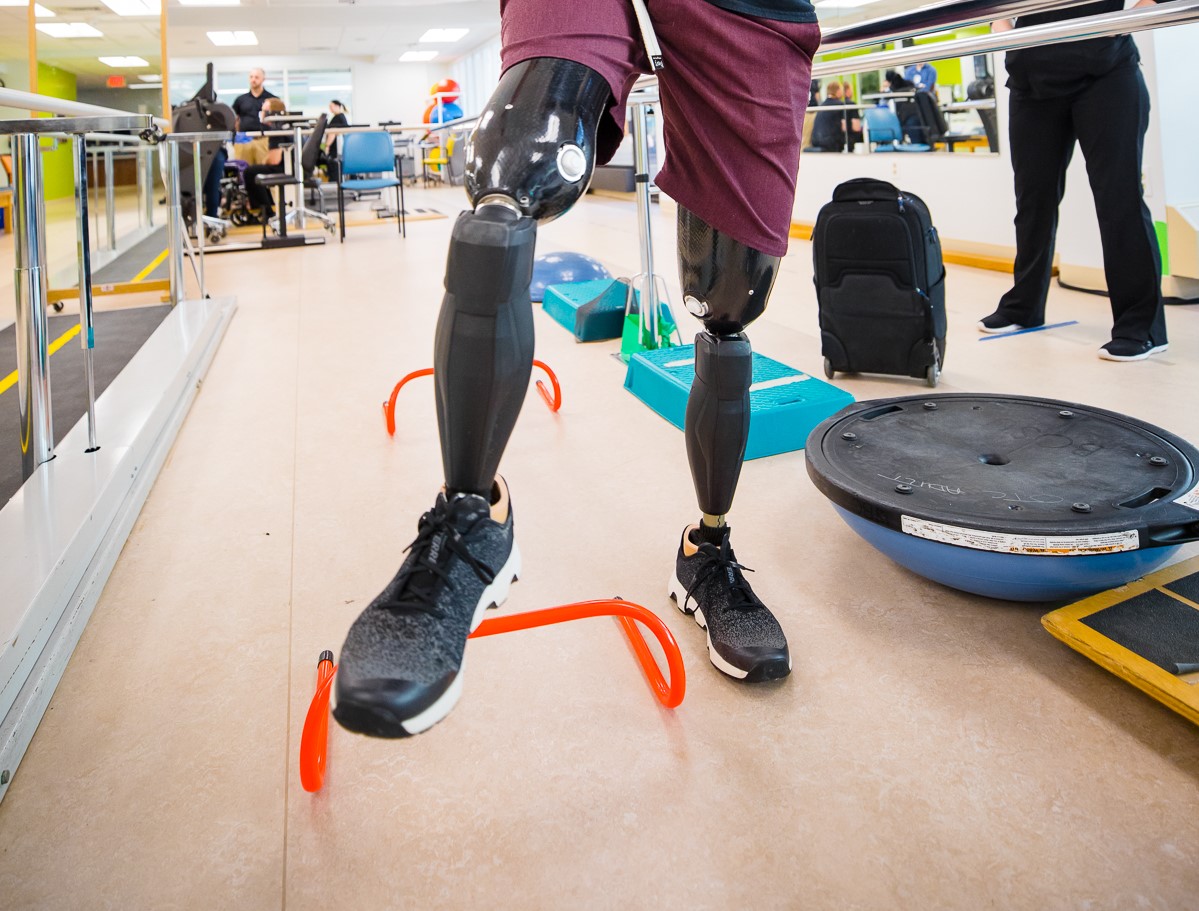
The duration and intensity of your therapy, including emotional support, will depend on your individual needs and tolerance. Research shows the sooner you begin rehabilitation, the better your outcome will be.
Patients typically do three hours of therapy five days a week, with rest and visits with family and friends on the weekends.
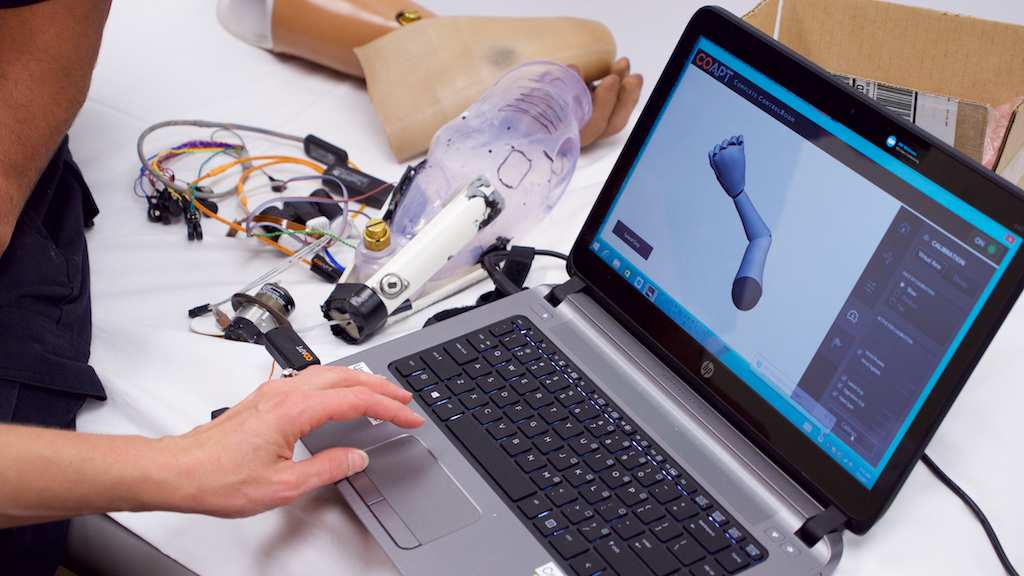
Our experts have access to innovative rehabilitation technology and tools to support your recovery. And when you’re ready, we offer the latest in prosthetics for mobility.
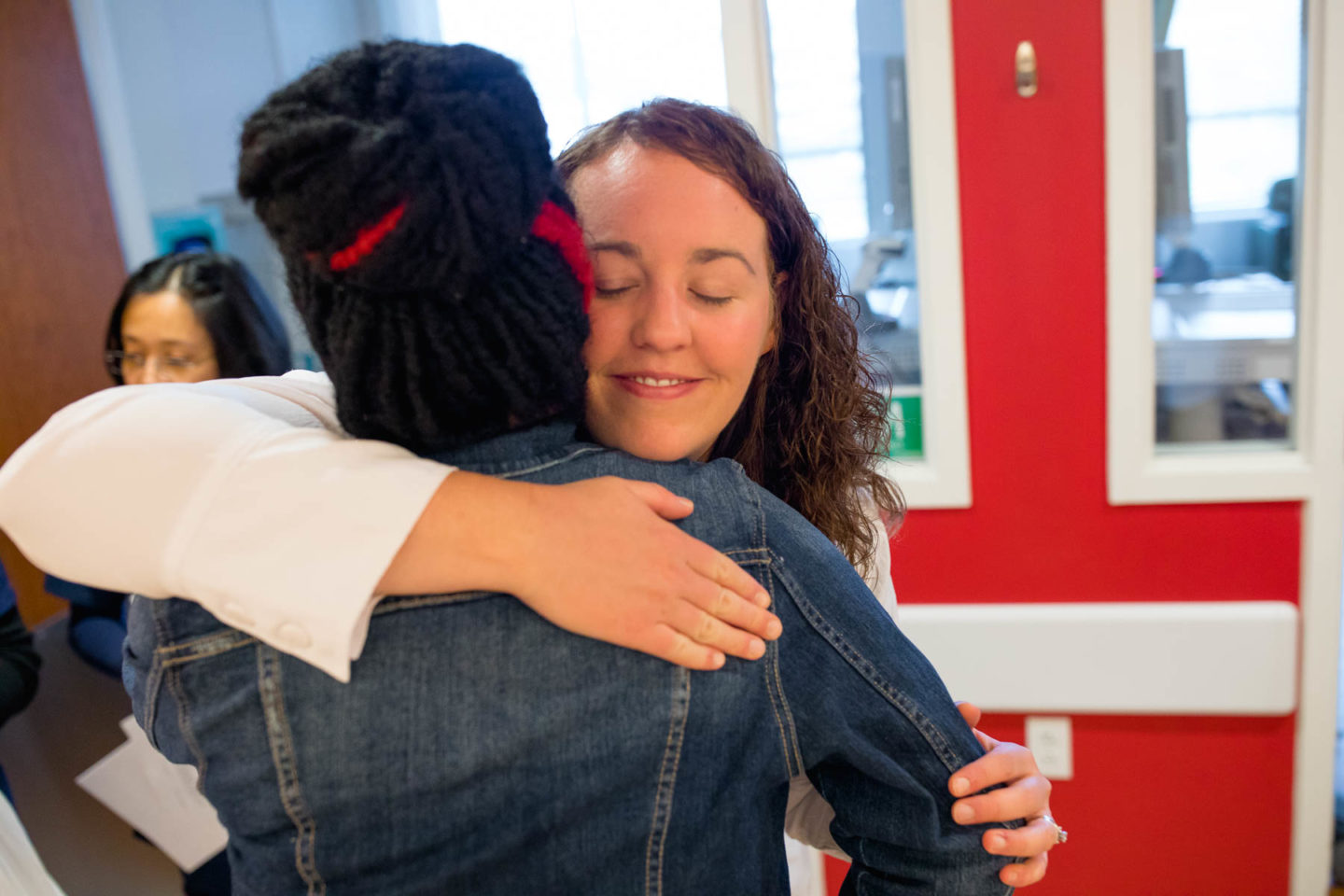
Your family is part of your team, too! After all, they’ll be helping you be as independent as possible after rehabilitation. That’s why we encourage loved ones to participate in your therapy sessions.
Your physical recovery isn’t our only focus. Care managers and psychologists are available to support both you and your family.
And, because no one understands your situation better than someone who has had an amputation, our Amputee Mentor Program matches you with other amputees who can share their experiences and insights.
The Great Lakes Amputee Network is Mary Free Bed’s support group for those affected by limb loss. Led by an amputee care liaison, the group meets monthly to discuss topics related to quality of life and peer support. They also host fun group outings, such as kayaking and bowling. Patients tell us this mentoring and peer support has a positive impact on their lives well beyond the time they spend here as patients.
Board-certified rehabilitation physicians, hand-selected for you and your condition(s).
Registered nurses with rehabilitation and wound care certification, as well as nurse technicians.

Amputee care liaison to provide education, care and counseling to ensure you receive your prosthesis at the most appropriate time.
Occupational therapists to help you resume independence with daily activities, such as brushing your teeth, getting dressed, doing laundry and grocery shopping.
Physical therapists to evaluate your strength, mobility and level of independence, then provide rehabilitation.
Psychologists focus on your emotional well-being, which is just as important as your physical condition.
Registered dietitians to evaluate your nutritional needs and monitor your food intake.
Speech-language pathologists to help you, if necessary, with eating, swallowing, speaking, breathing and so on.
Recreational therapists to help you get back to doing things you enjoy or introduce you to new leisure activities.
A care manager who partners with you and your caregivers to help you adjust to your injury and prepare to return home.
Prosthetist who works with you to customize a device that maximizes your mobility.
Mary Free Bed offers a full spectrum of care for a lifetime, including specialized therapy and our own prosthetics department.
Our programs and services are available whether you’re a graduate of our inpatient program or you’re new to our community.
As you age and your body and life circumstances change, your needs as an amputee can evolve. We’ll be there.
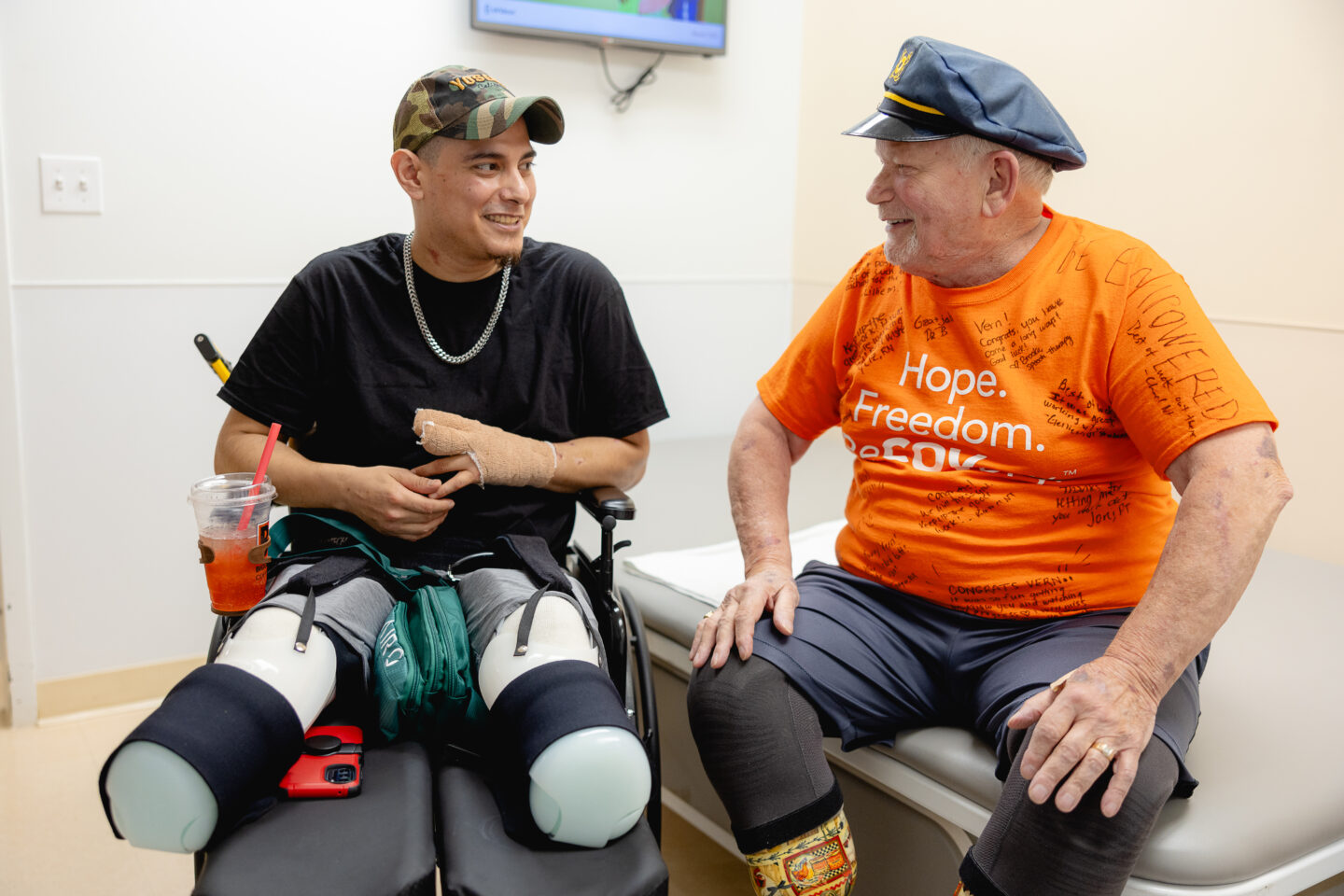
Amputee Clinic
Mary Free Bed’s Amputee Clinic offers medical care and support whether you’ve lost a limb because of illness or injury, or you have a congenital limb difference. You’ll see a physician who specializes in physical medicine and rehabilitation, rehabilitation nurse, physical therapist, amputee care liaison and prosthetist. These specialists will work together as a team to provide you with the best care. Open communication and a positive, problem-solving approach help us focus on your goals and progress.
You’ll need to be referred to the clinic by Mary Free Bed or by another source (for example, your medical provider). The Amputee Clinic is a preferred provider for most area insurance groups.
Prosthetics
If you’re a candidate for a prosthesis, we have on-site Orthotics & Prosthetics + Bionics, including a lab where we customize and repair prosthetic devices.
Depending on your needs, a board-certified prosthetist will work with you and your family to help you order a device that fits and functions, focusing on your safety and comfort.
Great Lakes Amputee Network
Mary Free Bed’s support group for those affected by limb loss meets monthly to discuss topics related to quality of life and peer support. The group also gathers for fun outings, such as kayaking and bowling.
Questions + Referrals
616.840.8007
800.668.6001
Our specialty services are designed to enhance and enrich your life. Your treatment team will help coordinate those that will best serve you.
In addition to our Orthotics & Prosthetics + Bionics department, here are just some of the other services we offer:
Below are questions we often hear from patients who have experienced an amputation. Talk with your treatment team about specific questions or concerns.
The amount of pain varies from patient to patient. Whatever level of pain you have, we want to stay ahead of it. Your doctors and nurses will work closely with you, prescribing and adjusting medications to ensure your pain is well controlled to help keep you comfortable.
Phantom limb sensation – the perception of still being able to feel your limb – is very real. Most amputees experience this phenomenon, but not as many know it can cause injuries. For example, you may attempt to step down on a now-missing limb because it feels like it’s still there. This usually happens when you’re groggy, such as during the night if you get up alone to use the bathroom.
You may also have milder pain in the removed part of the limb, called phantom limb pain. If this pain is a lingering problem for you, your amputee liaison can suggest medication, compression, mirror therapy, massage therapy, or electrical stimulation.
Most of our patients are ready for a prosthesis prescription six to eight weeks after their amputation. It may be a bit longer if you have other medical conditions. If you’re a candidate for a prosthesis, our team will provide a personalized timeline.
When you’re ready, we have board-certified prosthetists on-site at our Orthotics & Prosthetics + Bionics department to create your custom prosthetic device. The fitting process usually takes between two and six weeks, depending on your individual needs. The shape of your limb changes as post-surgical swelling disappears, so it frequently takes more than one attempt before you have the final fit.
Therapy plays a critical role preparing you to use your prosthetic device safely and comfortably. You’ll work on strength training, range of motion, desensitizing your residual limb and developing good soft tissue mobility. Therapy also includes practicing daily living activities and learning home exercises.
Absolutely. We believe your emotional recovery is as important as your physical rehabilitation. Losing a limb can feel a lot like losing a family member. It’s a deeply personal experience, and the grieving process and recovery is unique to you.
At times, it may seem like you’re on a rollercoaster, with feelings that can change significantly from one day to the next. That emotional range is normal, and we’ve helped thousands of patients to successfully navigate those fluctuations after amputation.
Our whole-person approach includes several emotional and psychological support options. For example, your care manager can work with your family to offer suggestions about what they can do to help you adjust to your amputation. Or your doctor may prescribe appropriate medication or other methods to address areas of concern.
And no one understands what you’re going through better than someone who’s had a similar experience. A member of our Amputee Mentor Program will be happy to meet you, give you practical tips for success and help you restore your peace of mind.
Still have questions? Feel free to contact us.